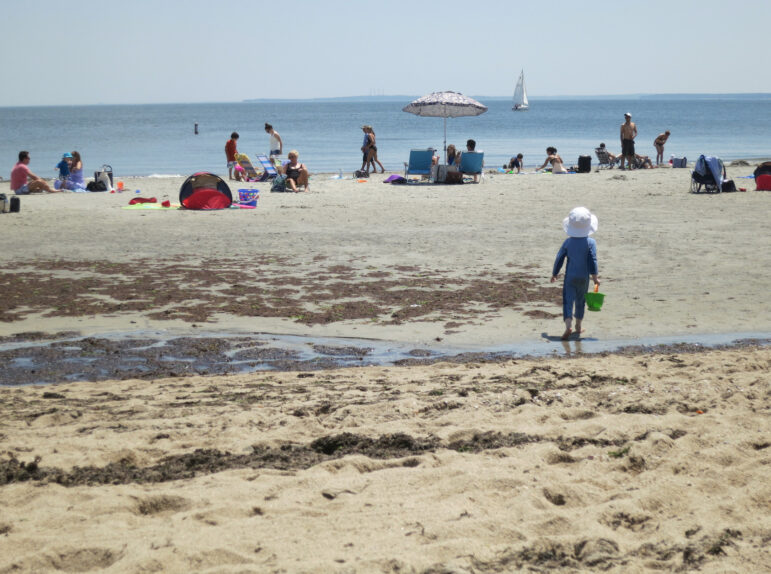It’s been a year since the last bill proposed in Hartford to change the law about beach access at Connecticut’s town beaches with policies favoring residents.
The issue of access for non residents to municipal beaches is again being considered by the state legislature.
The 2023 bill, Connecticut House Bill 6650, “AN ACT CONCERNING PUBLIC ACCESS TO CERTAIN COASTAL RESOURCES” is similar to last year’s bill.
A summary of the Bill:
To clarify that certain goals and policies concerning coastal management shall apply to all public coastal resources, and prohibit municipalities from restricting nonresident access to municipal parks and beaches that are accessible to residents or imposing fees for such access that are greater than fifty per cent of any fees charged to residents.
A Public Hearing is scheduled for Friday, Feb 17.
Here is the agenda which includes link to watch on YouTube Live, link to submit written testimony and link to sign up to speak:
https://www.cga.ct.gov/2023/PDdata/pha/pdf/2023pha00217-R001100PD-pha.pdf
There are already numerous testimonies submitted and available to read online. Almost all of them oppose the bill.
Greenwich First Selectman Fred Camillo submitted his testimony opposing the bill in advance, saying, “If we truly believe in local autonomy, then bills such as this conflict with this long held belief and tradition. In the case of my town, we do allow beach access to non-residents, have reasonable entry fees, and welcome all to come to enjoy them.”
“Our fees charged to non-residents are both fair and necessary as we maintain our parks and beaches without state or Federal assistance. They are also in line with our neighboring communities. To demand and mandate that we lower fees would amount to basically asking our town’s residents to subsidize non-resident usage. We also have capacity limits that are driven by concern for public safety.”
Last year a similar bill was proposed.
In March 2022, HB 5361 was a bill intended to improve access to Connecticut’s coast. Those in favor of the bill’s prohibition on beach towns from charging non residents more than 50% of fees paid by residents, talked about beaches as scarce resources.

David Kozak, who worked for DEEP’s Coastal Resource Management Program for 29 years where he helped manage its Coastal Public Access Program, testified at length in favor of the bill.
“All tax paying Connecticut residents help to fund the state programs that maintain the quality of Connecticut’s coastal shoreline, including the hundreds of millions of dollars we have spent on shoreline infrastructure, such as pubic wastewater treatment plant improvements to help improve coastal water quality, that support recreational enjoyment at our municipal beaches,” Kozak said.
“Connecticut’s shore is one of the most exclusive coasts in the US, with approximately 80% of the shore in private ownership, and most of its publicly owned shoreline, especially its coveted sandy beaches, is owned by municipalities,” Kozak continued.
Kozak used Greenwich as an example of towns that he said had created “significant barriers to access through restrictive fees and parking policies.”
Opponents of the bill included State Rep Steve Meskers who talked about how for example, in Greenwich, on a nice summer Saturday, the parking lot at Tod’s Point fills to capacity and cars are turned away.
In Old Greenwich there have been issues with cars parking on peripheral roads near the beach including Nawthorne Lane and Lucas Point, which is private. But residents say beach-goers leave cars as far north as Lincoln Ave, which is located off Sound Beach Ave, and either walk, bike or jog to the beach. Beach-goers have been spotted dropping off several cars and carpooling to the beach.
In 2022, HB 5361 died in committee.